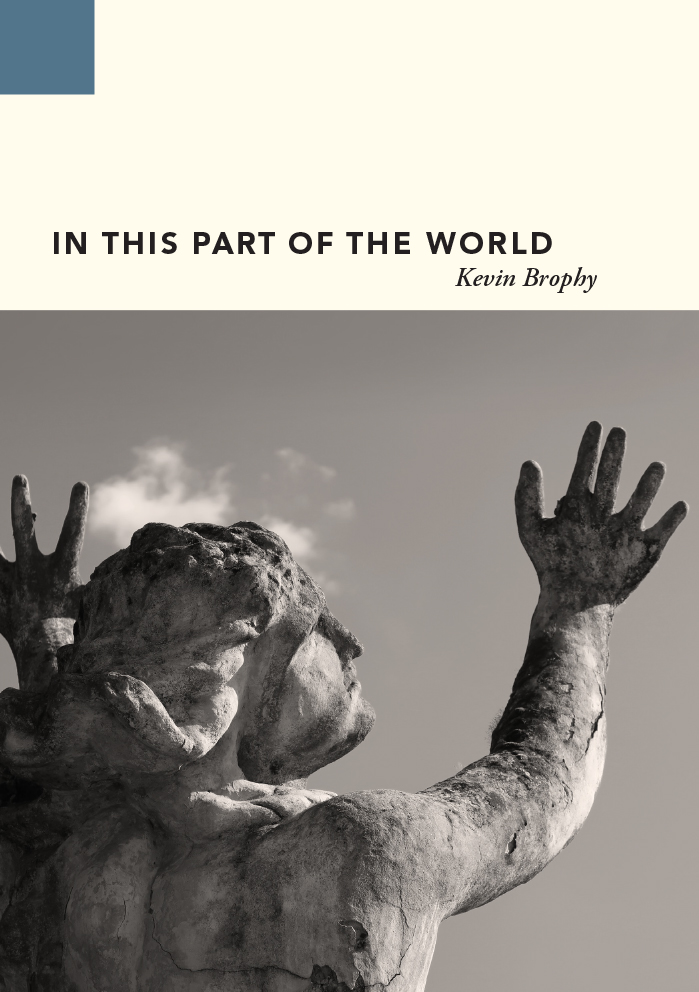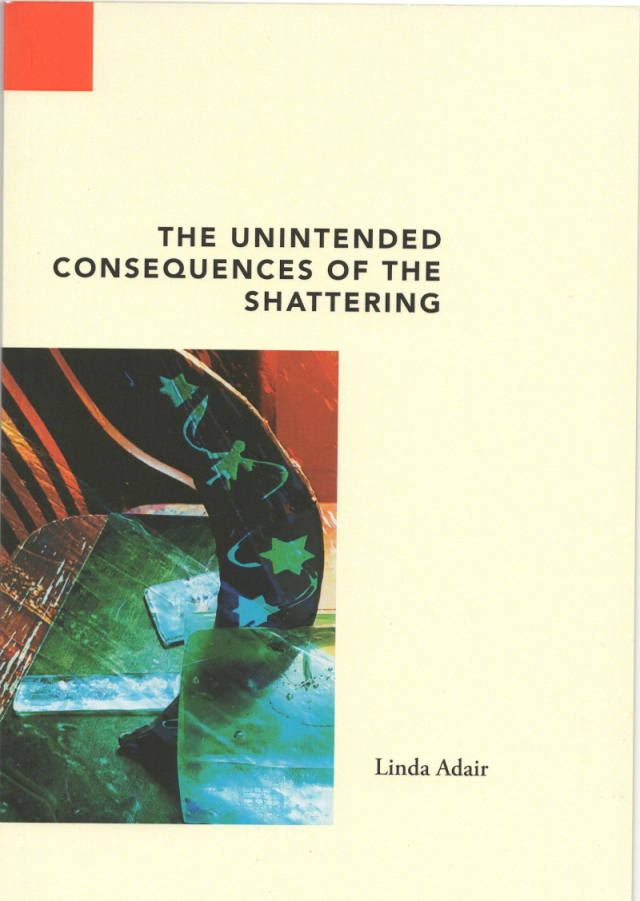
 In This Part of the World by Kevin Brophy
In This Part of the World by Kevin Brophy
Melbourne Poets Union, 2020
The Unintended Consequences of the Shattering by Linda Adair
Melbourne Poets Union, 2020
Despite the publishing limitations in 2020 caused by the COVID-19 restrictions, Melbourne Poets Union remarkably released seven chapbooks last year in its new Blue Tongue Poets and Red-bellied Poets series, all under the auspices of the soon-to-retire editor, Tina Giannoukos. These chapbooks included In This Part of The World by established poet Kevin Brophy and Linda Adair’s first collection, The Unintended Consequences of the Shattering, the latter continuing MPU’s long-standing tradition of nurturing new poets.
Kevin Brophy is a prize-winning poet with nine collections of poetry, as well as works of fiction and collections of essays. His experienced and deft poetic eye is on display in this current collection. Brophy’s poems are of movement and journeyings, dedicated to a type of travel that pays particular attention to the interiority of the observable world, not merely its surface impressions. He looks at the ‘underworks’ of things, searches out what is hidden behind emotions, landscape, history and particularly the natural world.
This dynamic movement between the observable and the visible can be seen in how the collection itself is structured into three sections. The first section, ‘Here’, concerns itself with poems that explore Melbourne and regional Victoria before moving outwards to ‘And There’, which takes the reader to Italy and parts of Europe before returning to ‘And Back’, where we began. But there is another movement or dynamism at work here, beyond the obvious geographical one. It is apparent particularly in Brophy’s poems of the natural world, observing but moving quickly on to deeper significances. In ‘Dog on the Road’, “the dog must be forgotten as quickly as possible” because:
Inside you is a world where lives come and go like days, like wrappers, like novels, like meals, like buses, like birds, like seasons, like you.
These exterior motifs are indications of inner worlds that the poems are interested in. In ‘No Mistakes’ there’s one concrete, observable world of alarm clocks, spiders and moths but more importantly an inner world of love and weddings as ‘a story about the world as it’s turned out to be’. In ‘What the Finch Knows’, the finch knows inexplicable mysteries which fascinate the poet but do not have to be solved. Mystery itself is at the heart of this poetic experience.
While the poems in this collection adopt a free-verse style (with just two prose poems), this particular poem is structured as a series of couplets, each a complete, separate observation. The enjambment allows the reader to pause often, observe and take a slower journey, allowing images to linger.
This poem also stands out in the collection for its bold alliteration, the repetition of the consonants ‘f’ and ‘s’, which lends a musicality and a robustness to the reading, emblematic of a finch’s song perhaps.
The finch is loved for being small, bright, neat, fast It knows every seed and spring in every wrinkle of its fearful songful world The finch knows how to live in joyful fright and fret, knows every shadow in every corner of its world.
The natural world for the poet hides other mysteries, even attributing human emotion to parts of nature as in ‘Winter’ where trees struggle to solve mysteries, a river is impatient, and the mist knows despair. The poet’s mind and imagination are drawn to these hidden parts of nature, imbued with emotion, as in ‘What We Walk Towards’:
Inside us and inside the mountains what lasts is dark, too dark to know about or dare imagine where the dark inner liquid rock might be flowing as we walk the paths.
The word ‘inside’ is a recurring motif in this collection where the poet is concerned with hidden meanings. The poems of Italy and Europe are in no way mere travel poems, for these poems concentrate specifically on the ordinary, the everyday, which could be anywhere. Take the poem ‘Mind as Hive’, whereby in walking the streets of a town, history becomes transparent to the poet, indeed transports the reader back to WWII when ‘German soldiers once attended Mass in the town cathedral while local people hid in their wine cellars.’ The poet’s eyes are trained below. The underground realities, even though now in the historical past, still dominate the imagination. The title of this poem too, ‘Mind as Hive’ suggests a metaphorical insight into how the poet perceives the intricate, hidden workings of the human mind.
‘Driving in Central Western Victoria’ reads like a metaphor for how the poet views each new poetic experience – a long journey through the countryside, revealing continual new towns and new experiences; ‘it goes round and round’, the poet says, until
I feel as if we can see all the way to the horizon from here amazing isn’t it it makes you want to just keep going.
Such attention to each experience, not matter how apparently small, seems to expand the work’s poetic vision. This poem employs an interesting enjambment where lines are short, employing few words.
Empty when you drive through it at this speed in winter it’s green in summer it goes yellow
The result is like driving through the countryside with truncated images flashing past the car windows in quick succession, giving an onomatopoeic, evocative effect.
In a poem such as ‘Appian Way’ the poet asks, ‘why does each step feel like a new sorrow left behind?’ The poet ‘sees’ and as a result carries away an emotional attachment to what has been seen. Small images – rock walls, cowbells, weeds, pines –all carry a need to understand much more.
We stop and read about the quality of late afternoon light try to find the lit edges of moving shadows.
The task it seems for the poet lies in searching out the deeper signs, the inner meanings of things ‘with a story about the world as it’s turned out to be’. (No Mistakes) The poems in this collection move like beams of light falling on hidden places, illuminating what was not obvious. Even the title of the collection, In This Part of the World, is not so much about a specific location but just wherever the poet happens to be the observer at that time. ‘This part of the world’ is fluid and mobile, not geographical but attached to the poetry’s optics.









